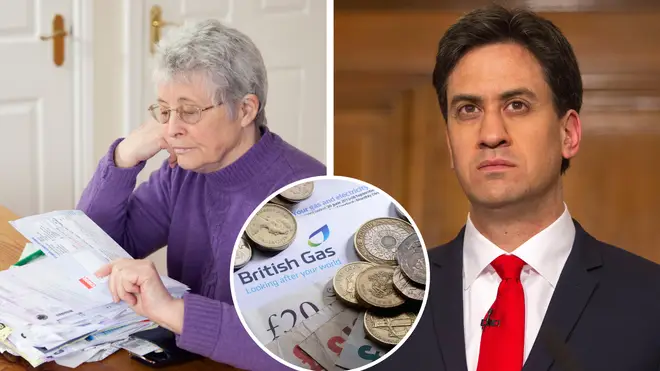
Ben Kentish 10pm - 1am
10 January 2022, 22:33 | Updated: 10 January 2022, 23:09

Labour is pressing the government over the cost of the living crisis that will cost millions of households as much as £1,200 extra.
The party is going to put forward a motion pressing the Tories to keep their promises on cutting VAT in an effort to save families as much as £600.
They are calling for VAT to be slashed on energy bills for a year, as well as a windfall tax on the North Sea oil and gas industry, to help support those struggling as energy prices skyrocket.
Labour says the move could save the average household around £200 whilst low earners, pensioners and "the squeezed middle" could end up with up to £600 off their bills.
During a debate in the Commons on Tuesday, labour will put forward a motion which, if passed, would force MPs to vote on the proposals.
The Government has previously resisted calls to cut VAT with Education Secretary Nadhim Zahawi said oil and gas companies were "already struggling".
Read more: LBC Views: There's no easy solution to the cost of living crisis for the PM
Read more: 'Cost of living catastrophe': Families face £1,200 hit as energy bills soar and taxes rise

Nick Ferrari puts Rishi Sunak on the spot over the cost of living
But Labour's shadow climate change and net zero secretary Ed Miliband said it was time to support families through the "growing cost-of-living crisis"as the industry is expected to report a "near-record" income in 2021/22.
Prime Minister Boris Johnson and Levelling Up Secretary Michael Gove are among conservative MP's who have previously pledged cuts to VAT.
Writing in The Sun in 2016 they said that leaving the EU would allow the UK to scrap VAT on energy bills, calling it "unfair".
Mr Miliband said: "The Government and all the Tory MPs who have previously backed a VAT cut on home energy bills should follow through with their promises and vote with Labour today to scrap the tax for a year, as hard-working people face a growing cost-of- living crisis.
"The Conservatives' clear opposition to the windfall tax tells you exactly whose side they are on - and it's not the British people struggling with their energy bills.
"It tells you everything you need to know about this Government that they believe we should prioritise oil and gas companies making huge windfall profits that they say are 'struggling', rather than the British people who face the true struggle to pay their energy bills.
Read more: 'I want to stay' says Djokovic, but bid to play in Australian Open still hangs in balance
Read more: Wilko plans to close 16 branches this year in 'nail in the High Street's coffin'

Ian Blackford grills Boris Johnson on cost of living crisis
"Labour will stand up for the millions of families across the country, with a package that won't just help the average household with around £200 off bills, but also targeted and focused support for those who need it most - including low earners, pensioners and the squeezed middle - with up to £600 in total off their bills."
It comes after fuel poverty charity National Energy Action warned heating costs for the average home could double since last winter.
No 10 said on Monday that ministers recognised there were "increased costs on things like both food and fuel" globally.
The Resolution Foundation previously said energy bills could rise by about £500 from April, while the cost of collapsing providers – triggered by rises in the price of gas – would add about £100 on to bills.
Read more: PM confirms self-isolation could be cut but insists he is 'following the science'
Read more: Queen's Platinum Jubilee plans revealed: Four day bank holiday weekend among the programme
Low income families, who spend more of what they earn on energy, will be disproportionately affected, potentially forcing them to spend 12% of their income on power, compared to 8.5% now.
National Insurance contributions will cost the average household £600 a year while real wages "had almost certainly" begun to fall, the foundation said.
It added they might not pick up until late 2022.